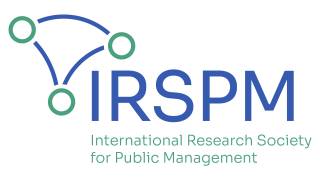
16-18 April 2024
Tampere University, City centre campus, Main building (address: Kalevantie 4), Finland
Hybrid Futures for Public Governance and Management
As governments have evolved into more hybrid constellations of actors, public governance has increasingly resorted to collaboration between governments and business as well as public–private–civil society cooperation. For addressing global management challenges for good governance, it is crucial to understand public management, not as detached from private efforts and civic activities, but as resulting from the outcome of the complex interfaces and interactions between them. The decades of market-emulating reforms have created a multitude of satellite actors orbiting around the government. In many cases, the expanding space between government and society has not liberated outsourced activities from government regulation or dependence on public financing. Often, the result is a hybrid arrangement, which combines public interests, for-profit motives and local self-determination. Sometimes the emptying of governments has given rise to development of practices which have reversed the traditional principle – agent roles by giving new powers to non-governmental operators to oversee the dealings of their public masters. From a bird’s-eye view, hybrid arrangements may appear complicated and messy. It is easy to see them as monstrous, as constellations of hollow politics in which important strategic choices have not been made democratically, or as systems of lousy business practices in which red tape prevents the pursuit of profit maximization. It is therefore important to open the discussion to critical voices to study the ‘dark side’ of hybridity. These may include distinct forms of misuse and manipulation of powers, not for common good, but for local gains. While we may be aware of the dilemmas of contrasting accountabilities, and control of hybrids, we often tend to ignore the effects of our own thought processes in naming and categorizing hybrid activities. Categories of public and private help to make sense of institutions, but at the same time we lose our ability to understand the variety of institutional life. Hybrid action involves multiplicity of goals, audiences, and performances. Hybrids are not a panacea for survival, nor are they a peril to our existence. Instead, they constitute fascinating subject of academic inquiry and opportunity for public management practice.
In addition to the numerous questions of general relevance for the field of public management the conference thus welcomes panels investigating questions related to the causes, processes, consequences and remedies of the above, complex set of phenomena:
- What is the impact of hybridity on strategic management, performance management and accountability of service delivery systems?
- How collaborative forms of governance deal with the problems and opportunities offered by institutional hybridity?
- How do current forms of crises shape the role and identity of public management in governing hybridity (e.g., pandemics, security and sustainability).
- What is the role of public managers, and other professionals in creating understanding on hybridity and hybrid governance.


